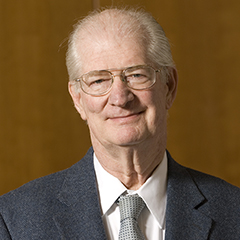Relocalization may be the most important strategy for minimizing climate change. According to Bill McKibben, “working as communities is the most important thing that we can be doing right now.” In this wide-ranging conversation about the sustainability of our civilization, McKibben shares his thinking about much more than climate change, including the fact that having “more” is not necessarily the key to our happiness. For a long time more and better were pretty much in the same direction….But sometime, and…
Tag Archives ecological economics
Robust economic growth has become the Holy Grail of public policy and politics. But some economists and many scientists have come to believe growth has become “uneconomic." Former World Bank Senior Economist Herman Daly explains this in terms we can all understand. The economy is a sub-system of a larger system. The larger system being the biosphere, the environment. The biosphere is finite, non-growing, materially closed. We get a flow of solar energy coming in, but it's not growing, either.…
How big is your ecological footprint? Probably bigger than you think. After all, out of sight, out of mind. As an originator of ecological footprint analysis, population ecologist William Rees knows a thing or two about our impact on the planet. In this interview he provides some fascinating, and surprising insights. This is one of our best episodes from season one. We're sharing these while we take a break between seasons 2 and 3. Help ensure there IS a season…
Our 41st episode is a retrospective of Seasons 1 and 2 of Conversation Earth. In this episode we turn the table, as co-producer Kaitlyn Hickmann interviews host/creator Dave Gardner. The two share highlights from previous episodes and discuss the joys and challenges of producing the series. Please comment below to let us know your favorite moment from the series. Thanks so much for listening, sharing and supporting this series. This episode serves as a great sampler, giving you a taste…
Human civilization can thrive while living within sensible limits imposed by a finite system. “Renegade" economist Kate Raworth manages to tell the truth about what we’re getting wrong in economics, while at the same time inspiring activism and optimism. In this conclusion of a two-part interview, Kate finishes her list of seven fundamentals to achieving a healthy 21st century economy. Her recently published book, Doughnut Economics: Seven Ways to Think Like a 21st-Century Economist, was called “brilliant, thrilling and revolutionary”…
What exactly are “think tanks” supposed to be thinking about? Are some of them part of a campaign to cast doubt on science when it could interfere with profits? Author Kerryn Higgs recounted the growth-seeking activities of the corporate world in her book, Collision Course: Endless Growth on a Finite Planet. Her research reveals think tanks, industry associations, and even university economics departments all play a role in advancing and preserving our society’s commitment to growth above all else, even…
We need to change the way we think if we want to extend the shelf-life of our civilization, according to Frances Moore Lappé, author of EcoMind: Changing the Way We Think and Diet for a Small Planet. In this 2017 conversation, Lappé explains some of the “thought traps” to avoid in order to effectively inspire transition from what she calls our “economy of destruction.” She also explains how democracy is much more than just a form of government; it is…
How can policymakers be persuaded to abandon the most widespread public policy goal on Earth? In our last episode, Brian Czech explained that economic growth cannot be sustained perpetually on a finite planet. This episode continues that conversation with the conservation biologist and economics expert. Here, he explains why pro-growth economists proliferate, and offers his prescription for making the shift to a steady state economy. Brian Czech is founder and president of the Center for the Advancement of the Steady…
Economic growth is the number one public policy goal around the world, yet our pursuit of growth is “pulling out the rug from our own kids’ and grandkids’ future,” according to Brian Czech, founder and president of the Center for the Advancement of the Steady State Economy. He wants us to understand economic growth is physically impossible to sustain on a finite planet, it’s depleting nonrenewable natural resources and degrading or eliminating crucial habitat for other species. Czech authored Shoveling…
Robust economic growth has become the Holy Grail of public policy and politics. But some economists and many scientists have come to believe growth has become “uneconomic." Former World Bank Senior Economist Herman Daly explains this in terms we can all understand. The economy is a sub-system of a larger system. The larger system being the biosphere, the environment. The biosphere is finite, non-growing, materially closed. We get a flow of solar energy coming in, but it's not growing, either.…


